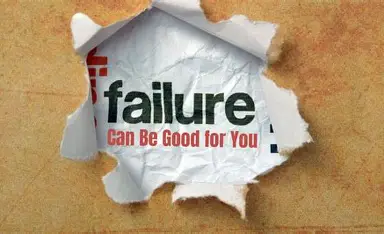Shocking Truth: Nigeria Spends Paltry $5 Per Citizen on Health Annually

Leading policymakers, health leaders, and global partners have issued a critical call to action for Africa, urging the continent to bridge its significant health gap through the establishment of stronger, integrated, and more equitable health systems, underpinned by robust funding. This urgent appeal was made during the opening of the 2025 Gatefield Health Summit in Abuja, where stakeholders unequivocally highlighted the profound disparities in global health infrastructure and investment.
The summit brought to light alarming statistics regarding Africa's health burden and corresponding funding. Despite carrying a substantial 25% of the world’s disease burden, the continent receives a mere 3% of global health spending. This stark imbalance is further exemplified by national figures, such as Nigeria's per-person health expenditure, which averages a dismal $5 annually. This figure stands in stark contrast to the $4,500 spent per person in Europe, underscoring a vast chasm in health investment and access.
To address this critical deficit, stakeholders advocated for a multi-faceted approach, emphasizing coordinated financing, the implementation of women-centered policies, and the fostering of African-led innovation. A core tenet of their argument was the assertion that resilient health systems are unattainable without placing women at their very foundation. This perspective recognizes the pivotal role of women in community health and the broader socio-economic fabric.
Adewunmi Emoruwa, the lead strategist at Gatefield, delivered a compelling keynote address, questioning why Africans are experiencing premature deaths. He framed this as a "crisis" of lost potential, drawing a direct link between the resilience of health systems and the differing life outcomes observed between the Global South and Europe. Emoruwa further criticized the inequity in health investment in Africa, stating that the continent is "actively defunding life." He cited the drastic 97% cut to Nigeria's national family planning budget as a poignant example of this trend.
Emoruwa passionately urged both governments and citizens to fundamentally rethink domestic funding strategies. He posited a transformative idea: if merely 1% of diaspora remittances were channeled towards systemic health interventions, Nigeria’s health budget could experience an immediate surge of $200 million. This highlights the potential for innovative financing mechanisms within the continent itself.
Adding another crucial dimension, Adenike Adeoye, a public health practitioner and official of Invictus Africa, underscored the significant economic benefits of investing in women’s health. She argued that such investments can directly enhance economic growth, leading to increased workforce participation and heightened productivity, thereby creating a virtuous cycle of development and well-being.
The call for transformation extended to the realm of medical practice, with Dr. Niti Pall, president-elect of the International Diabetes Federation, advocating strongly for prevention and innovation within primary care centers. She emphasized the necessity of equipping primary care health practitioners with superior tools and training to provide better patient care, thereby shifting the focus towards proactive health management.
Finally, concerns were raised regarding emerging health threats. Dr. Ummi Umar, founder of the Call-off Cancer Initiative, and Shirley Ewang, Advocacy Lead at Gatefield, separately voiced alarm over the escalating burden of non-communicable diseases, frequently driven by individual habits. They also highlighted the growing peril of antimicrobial resistance (AMR), warning that if left unchecked, AMR could tragically claim an estimated 10 million African lives annually by the year 2050, posing a severe threat to public health and global security.
You may also like...
Digital Portfolios Are the New Business Cards; Here’s How to Build One That Gets Seen

In today’s digital-first economy, your online portfolio is your handshake, résumé, and elevator pitch rolled into one. H...
Career Pivoting: Why Changing Paths Might Be the Smartest Move You Make

In a world where stability often overshadows fulfillment, career pivoting may be the smartest move for professionals se...
Why Your First Failure Might Be the Best Thing That Ever Happened to Your Business

Failure isn’t the end of entrepreneurship, it’s the education success never gives. Here’s why your first business collap...
Consumerism vs Culture: Is Africa Trading Values for Trendy Lifestyles?

Is Africa trading its cultural values for trendy lifestyles? Explore how consumerism, foreign brands, and social media p...
The War on Boys: Are African Male Being Left Behind in Gender Conversations

Why are African boys and men often left out of gender empowerment programs? Explore how emotional suppression, lack of m...
Pay Slip, Motivation Slips: The Silent Crisis Among the Working Class

Across Nigeria, millions of workers are trapped in jobs that pay just enough to survive but too little to live. Beneath ...
Premier League's Unsung Heroes: Bournemouth, Sunderland, and Tottenham Shockingly Exceed Expectations

This Premier League season sees teams like Bournemouth, Sunderland, and Tottenham exceeding expectations. Under Thomas F...
El Clasico Fury: Yamal Controversy and Refereeing Blunders Ignite Post-Match Debates
)
Real Madrid secured a 2-1 El Clasico victory over Barcelona amidst significant controversy surrounding a late penalty de...



)
